Mus City Guide
Mus City which was settled on
the upper Murat - Van Region of Eastern Anatolia between Korni Brook
and and Car Brook has a great history root that goes back to Urartu
Kingdom.
Although having a great potential for winter and nature
sports it does not really have enough infrastructure to support the
tourism potentiality of the area, however the work to support to the
tourism potentiality of this area is on the process at time being.
Traditional
Houses of Mus are usually consist of the 2 flat building rising behind
the front yard of the places. Because of the shape of the streets and
the settlement style give an outlook of a traditional typical Turkish
City , and it takes a shape within the frame of the necessities of the
geographical situation and the climate conditions. The walls made out
of Straws, Lime and Hair of Goat, roofs made out of mud, soils creating
those houses were defeated by the technology nowadays. It is possible
to see some of those houses in city center which are on the edge of
being destroyed.
Viticulture was one of the important incoming
factor of the city between 1800 and 1900, however only Mongok ,
Mehmetcan and Incebel vineyards are actively being used at the moment.
The
famous tulips of Mus were mostly produced on the 7th century and
decorated the gardens of Ottoman Empire's pavilions. Those tulips
having a unique shape of it's own which makes it quite valuable got
less and less by the other agriculture that spread all over the area
and the wrong way of the harvesting put the tulips of this area in a
danger of getting destroyed over the time therefore it is under the
protection area. The festival being held between the dates of 29 and
30 April has a great importance of representing this tulip value of the
location.
Kitchen of Mus provides a great variety especially with it's meat
dishes. Mus Meatballs (Hafta Diregi), Hez Stuffed Peppers, Cabbage
stuffed with Tomatoes(Kirkcikli Kelem Dolma), Corti and Keskek are only
some of the special tasty dishes pf the area.
Places to visit in Mus
Mosques; Grand Mosque, Alaaddin Bey / Pasa Mosque and Haci Seref Mosque.
Churches
and Monasteries; Arak Monastery, Cengilli / Beyaz Church (was first
used as a temple of fire in the first ages and was turned into a church
by Sasanian / Sassanid in 399 A.C.), Church of Virgin Mary, Sirong
Church, Red / Kirmizi Church, Church of Verk and Istefan Church.
Tombs; Kesik Bas, Seyh Halil, Ibrahim Zamidi / Zemzemi, Seyh
Mustafa, Seyh Ibrahim Hazretleri, Seyh Muhammed-i Magribi, Abdulvahap
Gazi Tomb, Catbasi Marty ,Üstad-ı Azam Şeyh Molla Resuli Sipik, Seyh
Molla Ibrahim Efendi Tomb and Seyyid Ahmed / Haci Gal Hazretleri Tombs.
Hamams / Turkish Baths; Alaaddin Bey Hamam and Gullu Hamam.
Castles; Castle of Mus, Hasbet Castle, Muset Castle, Bostankale
Castle, Malazgirt Church, Tikizli Castle, Katerin / Zincirli Castle.
Tumulus / Mound; Yagcilar / Evran Tumulus, Dolabas Mound, Bostankale Mound, Mercimekkale Tumulus and Kepenek Mound.
Historical Bridges; Murat River Bridge is a construction of Seljuk
Empire and the middle column is damaged at the time being, Hatun Bridge
is one of the rare structure from Seljuk Empire that still has it's own
shape and Kiz Bridge.
Amongst those architectural and archeological ruins of Mus some of
these structures comes important for the visitors such as Aradere
Village Tomb, Malazgirt Yenikoy / Alyar Rock Tombs and Varto Kayalidere
Site Ruins.
Provinces of Mus
Bulanik, Malazgirt, Haskoy,
Varto and Korkurt

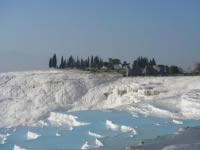 Pamukkale is one of the highlights of Turkey, and also referrers to Cotton castle in Turki.
Pamukkale is one of the highlights of Turkey, and also referrers to Cotton castle in Turki. 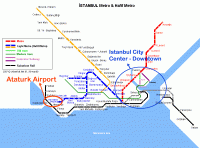 Istanbul city airports, location direction and maps of the all airports in Istanbul. How m.
Istanbul city airports, location direction and maps of the all airports in Istanbul. How m. 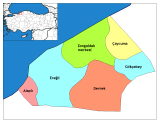 Zonguldak on the western part of Black Sea Region is a rich land for the history and ancie.
Zonguldak on the western part of Black Sea Region is a rich land for the history and ancie. 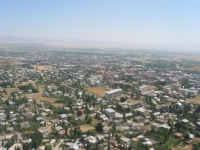
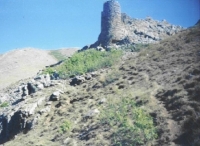
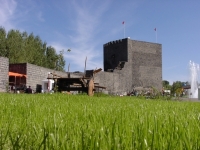
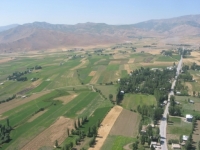
Latest 5 Comments & Request: